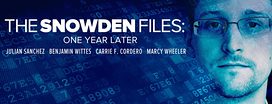Carrie Cordero made a fairly astonishing claim in her response to my focus on the SA’s theft from Google and Yahoo fiber overseas. She claims that that and other documents showing how the NSA double dips from PRISM producers, collecting content domestically under Section 702 and collecting it internationally under Executive Order 12333, shows “the [FISA Amendments Act] has been implemented consistently with how it was described in the public record of legislative text and Congressional hearings that took place up to its passage in 2008.” Cordero would have you believe that the Administration made it clear it intended to continue to steal data from American providers even after having been given Congressionally authorized access to it.
She is right on one count, though she doesn’t spell out how in her reply. From the very first debates over amendments to FISA in 2007, members of Congress – especially Senator Dianne Feinstein and then Senator Russ Feingold – raised concerns that the Executive Branch would simply bypass the law if it wanted to. And while then Director of National Intelligence (and now Booz Allen Hamilton Vice Chairman) Mike McConnell assured the Senators “the effort to modernize would prevent an operational necessity to do it a different way” (seemingly providing assurances the Intelligence Community would not bypass the FISA process as they have), McConnell and others, including Keith Alexander, kept repeating that “Article II is Article II.”
That is, throughout the FISA amendment process, the intelligence community was quite honest that it did not believe itself to be bound by the laws passed by Congress; they explicitly reserved the authority to simply go overseas to bypass limits and oversight imposed by Congress.
That’s why the 800 words Cordero used to describe the oversight exercised by the FISA Court and Congress as part of the FISA process really describe something that is – as Julian Sanchez argued – decorative. So long as the intelligence community does bypass those authorities to carry out the same collection overseas (they definitely do that with content, and appear to do that with metadata), the oversight of other branches is a mere indulgence from the Executive, made all the weaker because both branches are aware that the Executive will bypass their oversight if the oversight is deemed overly strict.
The reaction towards the Privacy and Civil Liberties Oversight Board’s report on the phone dragnet – which listed a number of ways the program did not comply with the law – is instructive on what happens when an entity tries to exercise real oversight. Before the report, Congress discussed giving PCLOB subpoena power, a role in the FISC advocate process, and expanded review of NSA’s activities. All those plans have been forgotten in the wake of PCLOB actually daring to review the letter of the law, as they had previously informed Congress they would do.
NSA arbitraging of the jurisdiction of FISA may or may not be legal – perhaps one day the Supreme Court will decide. But, legal or not, it undermines the effectiveness of the three-branch oversight that itself covers just a small part of the NSA’s spying.

